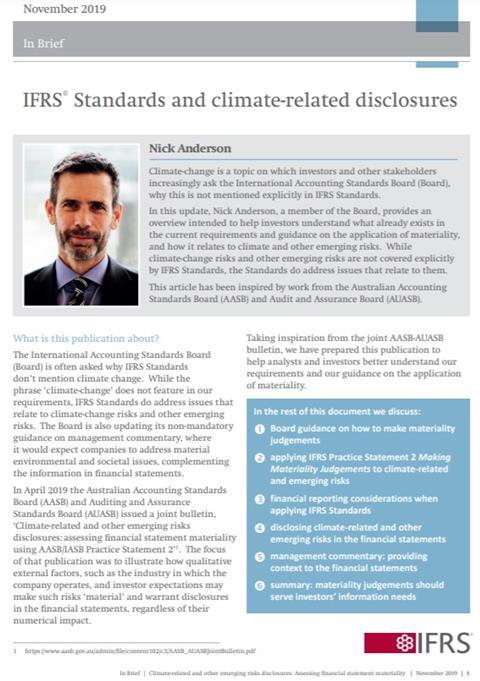Accounting for climate change
Investors are calling for hard information on the financial impact that climate change will have on companies. The financials define profitability and drive executive remuneration, so ensuring they properly reflect climate-related risks is crucial. Investment decisions, both by companies and investors, depend on the numbers disclosed in the audited financial statements.
Latest
Flying blind - The glaring absence of climate risks in financial reporting
More than 70% of listed companies that represent some of the world’s largest carbon-polluters, alongside most of their external auditors, are not fully accounting for climate-related risks in financial statements. This is despite significant financial risks faced from the climate crisis and net-zero pledges made by many.
Fuller financial disclosures enable investors to incorporate climate risks into their investment decision making, helping focus investment on those companies that are more likely to thrive in a carbon-constrained future. At the moment, most companies assume business as usual in their financial statements, while at the same time in the annual report recognising that business as usual is something that the planet simply cannot sustain.
The IASB, which sets accounting standards in the bulk of the world, has issued a paper making clear that material climate change risks must be incorporated in IFRS financial reporting. If properly followed it will have profound implications for the way companies are valued and the decisions made by investors.
The PRI, UNEP FI, UN-convened Net-Zero Asset Owner Alliance, IIGCC, IGCC and AIGCC in an open letter are supporting the IASB opinion and calling for:
- Companies to apply the IASB opinion in the letter and the spirit, including showing the key assumptions that have been made with regard to climate-related risks
- The assumptions made by companies in preparing financial statements under International Financial Reporting Standards be compatible with the Paris Agreement
- Auditors sign off financial statements which are consistent with the IASB opinion in the letter and the spirit, which include showing the key assumptions that have been made with regard to climate-related risks
- Regulators and civil society support the implementation of the IASB opinion
If the investor group letter is followed, the effect would be to discourage companies from investing in projects that are only profitable because they do not pay the cost of the damage they do to the planet. In 2020 we have seen a number of oil companies write down the value of their asset bases, using oil price assumptions that are closer to those that might be consistent with the Paris Agreement. The impact of changing assumptions is shown most recently by BP, which flagged a massive loss of US$16.8 billion because they are moving to adopt more realistic future oil price assumptions.
Others have joined our call. For example the ICAEW, which is the largest professional body of accountants outside the USA, has written about the need to consider climate.
The global auditing standard-setter, the IAASB, has also produced a paper highlighting the ways in which climate change is already embedded within its requirements, the ISAs. This provides important further backing for the investors’ call. Furthermore, the IASB recently reinforced the message of the November 2019 paper through the publication of educational materials which confirm that material climate change issues should already be reflected in IFRS compliant accounts.
As investors, we need this change to be delivered not just by one sector, but across the investment universe. This will happen, but only if companies and their auditors are aware of the importance of the IASB paper.
PRI is asking signatories to individually sign an investor statement to support our continued engagement with the audit industry, accounting bodies and regulators to support the implementation of the IASB opinion. If you are interested in supporting this statement, please contact [email protected] for further details.
Contact at PRI
Morgan Slebos: [email protected]
Open letter
Investor groups call on companies to reflect climate-related risks in financial reporting
Investor groups call on companies to reflect climate-related risks in financial reporting






